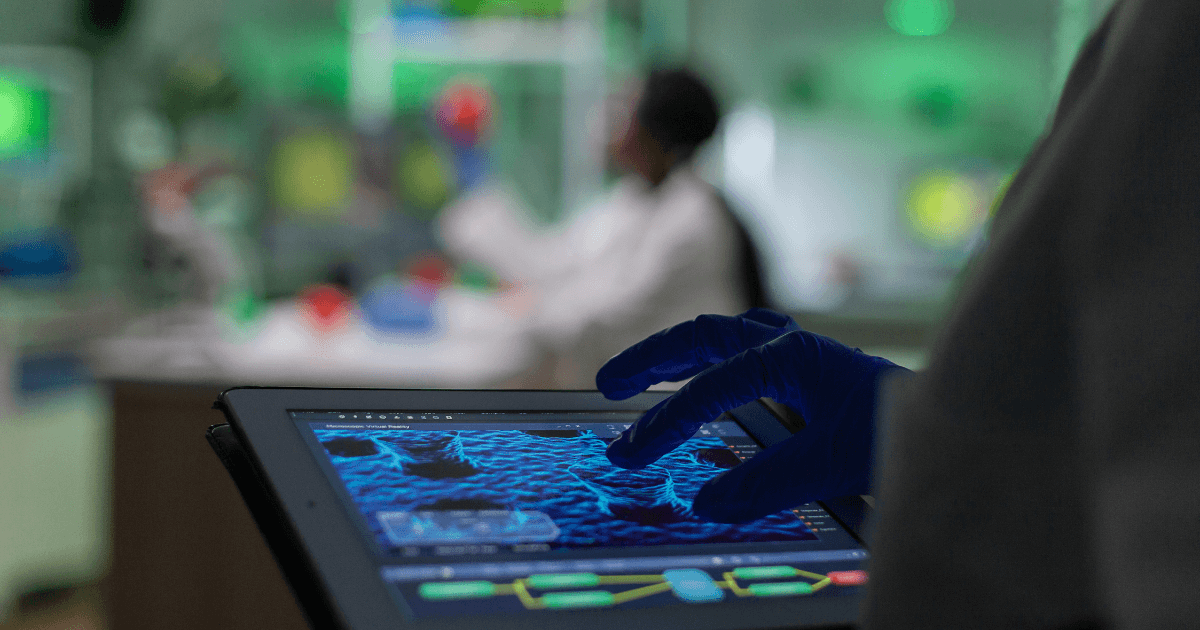The pharmaceutical industry responded to the Covid-19 pandemic by accelerating digital transformation, especially in drug discovery. Artificial Intelligence (AI), particularly generative AI, gained traction in this space. Over the last few years, increased interest, startup growth, and collaborations between pharma and AI vendors, using generative AI, became evident. Drug discovery, complex and expensive, has found promise in generative AI for molecule creation, target identification, and repurposing. Companies like Insilico Medicine, Adaptyv Bio, and Iktos harnessed generative AI for drug discovery. Challenges to wider adoption include data quality, expertise requirements, and ethical/regulatory concerns. As the pharmaceutical sector seeks targeted therapies, generative AI’s role in drug discovery is crucial, despite existing limitations.
The Covid-19 pandemic was a major catalyst for the pharma industry to redefine its operations and embrace digital transformation at a faster pace. For example, the impact of artificial intelligence (AI) has been profoundly felt in the drug discovery space.
Over the past three to four years, there has been increased interest in the use of the technology, as witnessed by the emergence of an ever-growing number of start-ups, record levels of investment, and an increase in deals between pharma and AI vendors, including those using generative AI.
Drug discovery is known to be an ever-growing complex process that is incredibly expensive and time-consuming, and involves multiple processes including target identification and validation, hit identification, and lead optimisation. The time needed for a drug to reach the market ranges from 12 to 18 years, with an average cost of $2.6bn. Success rates are also low, with just 10% of candidates making it into clinical trials. Generative AI has shown great promise in accelerating and improving drug discovery processes. Most use cases of generative AI have been in the creation of new drug molecules (de novo drug design), but there is also the potential for the technology in target identification and drug repurposing. Companies across various industries have been quick to recognise the potential of generative AI and have been actively exploiting its applications to gain a competitive edge and improve their products in the drug discovery space. Examples of companies with generative AI platforms for drug discovery include Insilico Medicine, Exscientia, Iktos, Adaptyv Bio, and AbSci.
Insilico Medicine, a pioneer in the use of generative AI in drug discovery, has developed and validated a generative adversarial network-based AI platform and integrated this into its now commercially available Pharma.AI platform. This platform aims to accelerate the generation of novel molecules, disease target identification, and prediction of clinical trial outcomes. Insilico discovered and designed the world’s first AI-generated anti-fibrotic small molecule inhibitor (INS018_055) on lung function in patients with idiopathic pulmonary fibrosis, which has completed Phase 0 and Phase I trials. In June 2023, it entered Phase II clinical trials.
Another example includes Switzerland-based biotechnology startup Adaptyv Bio, which announced in March 2023 that it had created a platform that utilises generative AI for protein engineering. Its protein engineering platform utilises generative Algorithms, advanced robotics, microfluidics, and synthetic biology technique to generate and optimise protein sequences. In June 2023, Iktos and Curreio, a Japanese cryo-electron microscopy (EM) expert, entered a partnership that aims to leverage the power of AI and cryo-EM technology to expedite the discovery and design of novel preclinical drug candidates. Iktos’s generative AI technology, Makya, will benefit from the insights gained through cryo-EM analysis, enabling the design of molecular structures that maximise protein-ligand interactions. This is expected to improve the accuracy of predicting molecules that meet the project’s target product profile, accelerating the drug discovery process.
As the pharmaceutical industry shifts towards developing more complex and targeted therapies, the role of generative AI will become even more critical. The adoption of the technology in drug discovery is growing, but it is still limited in many settings. Barriers to the adoption of generative AI include requiring large and high-quality datasets for training, a requirement for specialised expertise in machine learning and data science, and challenging ethical and regulatory considerations.

